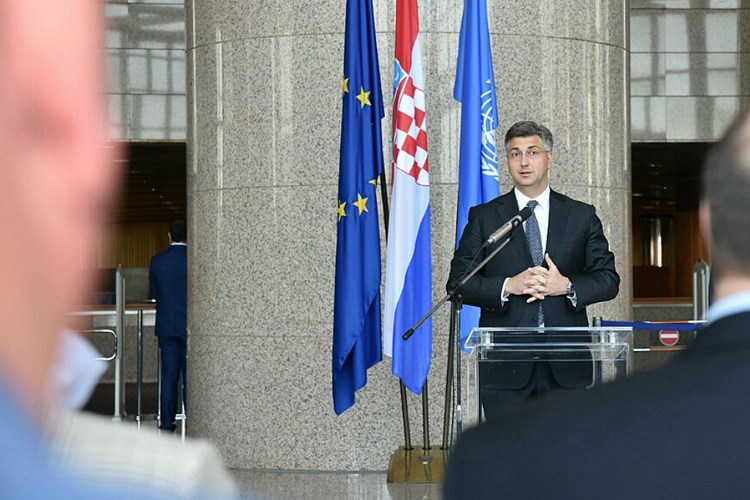- Published: 22.05.2017.
Croatia marks 25 yrs of UN membership
Croatia is marking 25 years of UN membership on Monday, with Prime Minister Andrej Plenkovic saying at a ceremony that the peaceful reintegration of the Danube river region had been one of the UN's most successful missions in Europe and that Croatia could share that experience with Ukraine, which he said was in a similar situation.
By hoisting its flag outside the UN building on 22 May 1992, with then Croatian President Franjo Tudjman and UN Secretary-General Boutros Boutros-Ghali attending, Croatia was admitted to the organisation together with Slovenia and Bosnia and Herzegovina.
"The UN membership rounded off Croatia's international legitimacy," Plenkovic said at the ceremony attended by state, military, police and church leaders and representatives of the diplomatic corps.
UN membership was achieved only months after 12 European Community member states recognised Croatia and a month after the US did so, and Croatia's first diplomatic successes were achieved in the UN, Plenkovic said.
"Then we were a recipient of security. Several UN missions were on our territory and, by all analyses, the most important and most successful one on European soil since its establishment was the mission for the transitional administration in eastern Slavonia, Baranja and Srijem," he said, adding that "the peaceful reintegration was a success both for Croatia and for the UN, as well as a model for similar situations elsewhere in the world."
"We have shared that experience of ours with our friends in Ukraine, who have a similar situation," Plenkovic said, adding that today Croatia provided and contributed to security around the world.
The UN remains to be a very relevant global organisation to which Croatia, in 25 years of membership, has been continuously contributing in all segments, but it has "a small specific quality which is imperfect in numerous aspects," namely that its leadership and key decision making mechanism still reflect the world at the end of World War II, Plenkovic said.
That's why there is no doubt that discussions on a reform of the Security Council, on the organisation itself and on decision making will remain on the agenda for many more years, he added.
Text: Hina
